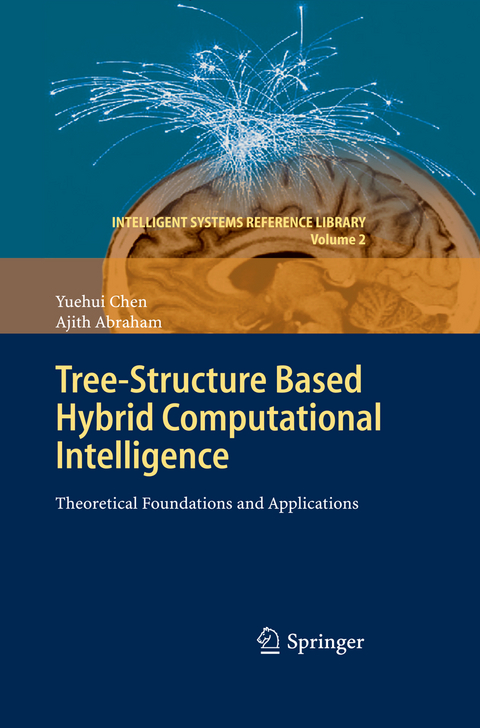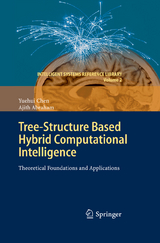Tree-Structure based Hybrid Computational Intelligence
Springer Berlin (Verlag)
978-3-642-04738-1 (ISBN)
lt;p>Research in computational intelligence is directed toward building thinking machines and improving our understanding of intelligence. As evident, the ultimate achievement in this field would be to mimic or exceed human cognitive capabilities including reasoning, recognition, creativity, emotions, understanding, learning and so on. In this book, the authors illustrate an hybrid computational intelligence framework and it applications for various problem solving tasks. Based on tree-structure based encoding and the specific function operators, the models can be flexibly constructed and evolved by using simple computational intelligence techniques. The main idea behind this model is the flexible neural tree, which is very adaptive, accurate and efficient. Based on the pre-defined instruction/operator sets, a flexible neural tree model can be created and evolved.
This volume comprises of 6 chapters including an introductory chapter giving the fundamental definitions and the last Chapter provides some important research challenges. Academics, scientists as well as engineers engaged in research, development and application of computational intelligence techniques and data mining will find the comprehensive coverage of this book invaluable.
Dr. Ajith Abraham is Director of the Machine Intelligence Research (MIR) Labs, a global network of research laboratories with headquarters near Seattle, WA, USA. He is an author/co-author of more than 750 scientific publications. He is founding Chair of the International Conference of Computational Aspects of Social Networks (CASoN), Chair of IEEE Systems Man and Cybernetics Society Technical Committee on Soft Computing (since 2008), and a Distinguished Lecturer of the IEEE Computer Society representing Europe (since 2011).
Foundations of Computational Intelligence.- Foundations of Computational Intelligence.- Flexible Neural Trees.- Flexible Neural Tree: Foundations and Applications.- Hierarchical Neural Networks.- Hierarchical Neural Networks.- Hierarchical Fuzzy Systems.- Hierarchical Fuzzy Systems.- Reverse Engineering of Dynamical Systems.- Reverse Engineering of Dynamic Systems.- Conclusions and Future Research.- Concluding Remarks and Further Research.
lt;p>From the reviews:
"The book puts forward a hierarchical hybrid computational intelligence framework, in which models of a hierarchical structure and appropriate types of function operators are created and optimized by means of computational intelligence techniques. ... The book is both informative and stimulating and thus becomes an interesting and valuable source." (Ruxandra Stoean, Zentralblatt MATH, Vol. 1195, 2010)| Erscheint lt. Verlag | 3.11.2009 |
|---|---|
| Reihe/Serie | Intelligent Systems Reference Library |
| Zusatzinfo | XIV, 206 p. |
| Verlagsort | Berlin |
| Sprache | englisch |
| Maße | 155 x 235 mm |
| Gewicht | 1090 g |
| Themenwelt | Informatik ► Theorie / Studium ► Künstliche Intelligenz / Robotik |
| Technik | |
| Schlagworte | Cognition • Computational Intelligence • Data Mining • Dynamical Systems • Emotion • flexible neural trees • flexible neural trees networks • fuzzy system • Hardcover, Softcover / Technik/Allgemeines, Lexika • learning • neural network • Neural networks • Problem Solving • proving |
| ISBN-10 | 3-642-04738-6 / 3642047386 |
| ISBN-13 | 978-3-642-04738-1 / 9783642047381 |
| Zustand | Neuware |
| Haben Sie eine Frage zum Produkt? |
aus dem Bereich




